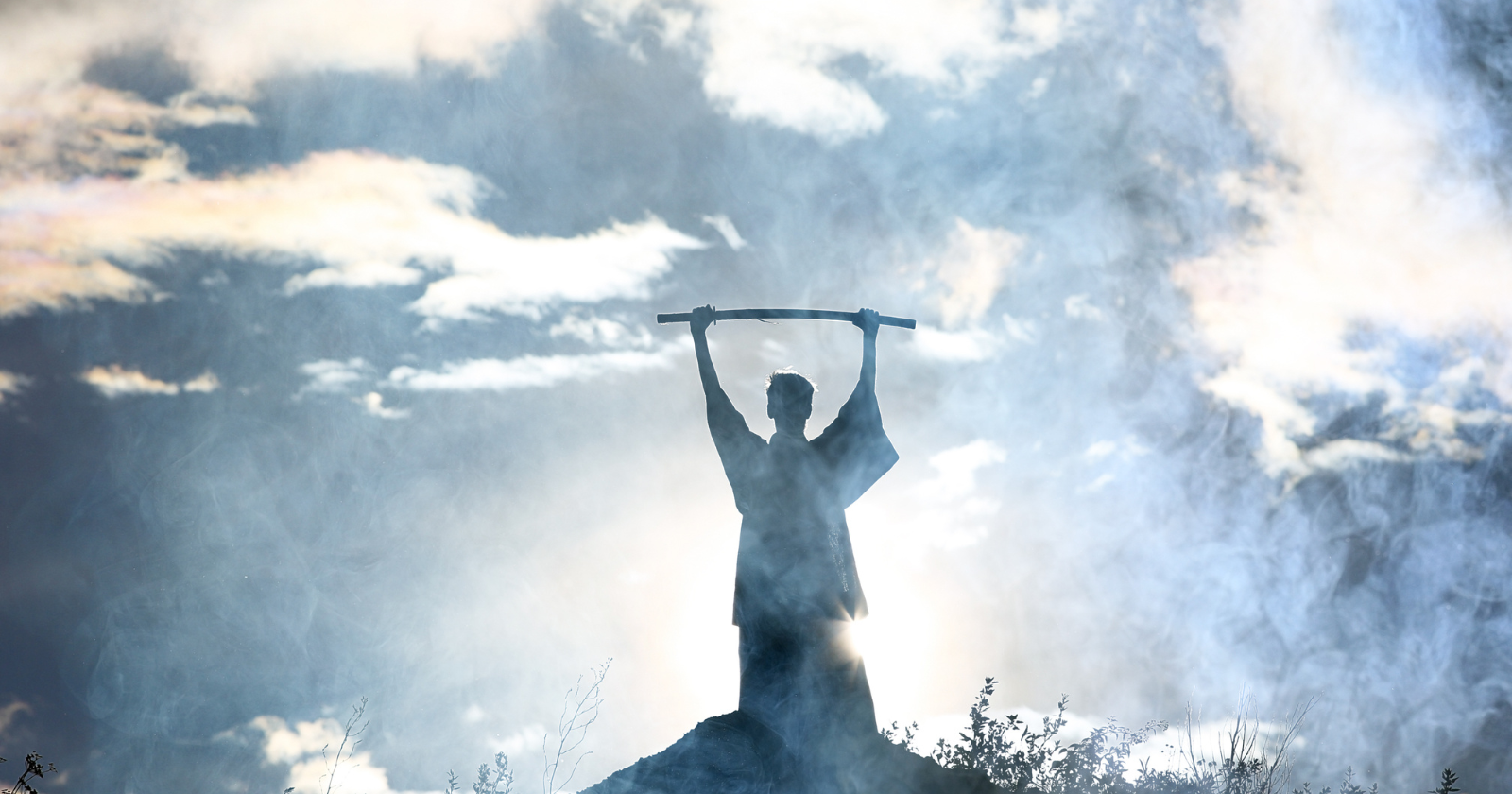In the face of adversity, we often seek inspiration and guidance from various sources.
One such source, surprisingly, can be the story of Moses.
This biblical tale offers profound insights into the concept of psychological resilience — an essential skill for overcoming challenges in life.
The journey of Moses, fraught with hardships and trials, acts as a testament to the power of resilience and persistence in the face of adversity.
For believers and non-believers alike, understanding and internalizing these teachings can provide a roadmap for developing their own psychological resilience.
Let’s get started and uncover how Moses’s story can provide strength during uncertain times.
Moses’s journey: A testament to resilience
Moses was born into a time of oppression. His life was threatened from the moment of his birth and his early days were precarious.
Yet, his journey took a dramatic turn when he was adopted into Egyptian royalty, only to later flee into exile after defending a Hebrew slave.
One of the key events showcasing Moses’s resilience is his confrontation with Pharaoh.
Despite the risk and potential consequences, Moses stood firm in his demand for the liberation of his people. This event underscores the importance of courage and conviction in adversities.
Moreover, leading the Israelites through the desert for 40 years required immense perseverance.
Each step of the way, Moses had to confront not only external adversities but also his own insecurities and moments of despair.
Moses’s story teaches us that resilience is not about the absence of doubt or fear, but about the courage to face them head-on and persist, driven by faith and a sense of purpose.
6 lessons from Moses’s story to deepen your resilience
1. Facie adversity with unwavering faith
One of the most powerful lessons from Moses’ story is the ability to face adversity with unwavering faith.
Moses’ life was a series of trials, from his birth to his leadership of the Israelites out of Egypt. Yet, he remained steadfast in his faith.
The Pharaoh threatened his life before he was even born, forcing his mother to place him in a basket on the Nile River. He was raised in an Egyptian palace, only to be exiled as an adult.
Later, he led the Israelites through the wilderness for 40 years, facing numerous challenges including hunger, thirst, and rebellion among his people.
But guess what?
Moses never wavered in his faith.
That’s because he trusted God and followed His guidance at every turn, demonstrating extraordinary psychological resilience.
2. Be patient and perseverant
Another key lesson from Moses’ story is how he developed resilience through patience and perseverance.
Leading the Israelites to the Promised Land was not a swift journey.
As I mentioned, it ook 40 years of wandering in the desert, enduring hardships, and overcoming countless obstacles.
But Moses managed to maintain remarkable patience and perseverance throughout this arduous journey. How so?
Simply — he trusted in God’s timing.
Now, I want you to consider this:
How often do you find yourself growing impatient when things don’t go as planned?
Most of us want immediate results, quick solutions to our problems, right?
But Moses’ story shows us the value of patience and perseverance in developing resilience.
In our own lives, we may face prolonged periods of difficulty or uncertainty. Like Moses, we can grow in resilience by practicing patience, persevering through challenges, and trusting in God’s timing.
This is not easy, but it is a crucial aspect of spiritual growth and psychological resilience.
3. Embrace vulnerability as strength
Counterintuitively, Moses’ story teaches us that embracing our vulnerability can be a source of strength and resilience.
Often, we view vulnerability as a weakness, something to be avoided or concealed.
Yet, Moses showed us that recognizing and accepting our vulnerabilities can foster resilience.
Here’s the thing: Moses had his share of vulnerabilities.
For instance, he was not a confident speaker — a fact he admitted when God called him to lead the Israelites out of Egypt.
Despite this, he didn’t let it deter him from his mission. Instead, he acknowledged his weakness and relied on his brother Aaron to speak on his behalf.
But embracing this vulnerability was part of Moses’ resilience.
And the same goes with us: acknowledging our vulnerabilities can be an act of courage that strengthens our resilience.
4. Harness resilience through reliance on God
How many times have you ever felt overwhelmed by circumstances beyond your control?
Well, Moses’ story shows us that relying on God in such situations can foster resilience.
Throughout his journey, Moses faced seemingly impossible situations, from the parting of the Red Sea to providing food and water for the Israelites in the desert.
Despite the odds, Moses continually turned to God for guidance and support. His faith was not passive; it was active reliance on God.
This active reliance is a powerful aspect of psychological resilience.
It shifts our focus from what we can’t control to who we can trust – God.
The best thing is that this shift is transformative — it helps us navigate life’s challenges with a sense of peace and confidence.
Food for thought: Moses’ actions demonstrate that resilience is not just about enduring hardships – it’s about actively relying on God amidst those hardships.
5. Build resilience through community
Perhaps not surprisingly, Moses’ story also highlights the importance of community in fostering psychological resilience.
Throughout his journey, Moses relied not only on God but also on the support of those around him.
For example, Aaron, his brother, was a great source of support.
When Moses doubted his ability to lead because of his speech impediment, it was Aaron whom God appointed to speak on his behalf.
During the journey through the wilderness, it was Aaron and Hur who held up Moses’ hands during the battle against the Amalekites.
Here are a few key takeaways from this:
- Moses didn’t have to face his challenges alone.
- His community was instrumental in supporting him.
- Together, they overcame their collective adversities.
As you can see, building a supportive community can drastically improve our ability to withstand and overcome adversities.
Just like Moses, we can lean on our communities for support and encouragement in times of hardship, strengthening our psychological resilience.
6. Transform fear into resilience
Imagine being tasked with leading a multitude of people out of slavery and through a wilderness, not knowing what lies ahead.
This was the monumental task Moses was given.
It’s natural to assume that he must have been fearful, yet he chose to transform his fear into resilience.
How did Moses accomplish this?
Well, he relied on his faith in God.
He was uncertain, but he trusted in God’s promises and guidance, choosing to step out in faith even when the circumstances seemed impossible.
Can you imagine how different the story would have been if Moses had allowed his fear to paralyze him?
Instead, he transformed it into resilience, leading the Israelites to freedom.
Insight: Fear is a natural response to adversity. Yet, we can choose to transform our fear into resilience. By trusting in God and stepping out in faith, we can face our fears head-on, fostering psychological resilience and personal growth.
Applying resilience lessons from Moses’s story
Drawing inspiration from Moses’s story, we can begin to understand how to cultivate our own psychological resilience.
How so?
Well, the first step is embracing courage.
Just as Moses stood up to Pharaoh, we too can find strength within ourselves to confront adversities.
The second lesson revolves around perseverance.
Just as Moses guided the Israelites through a 40-year journey in the desert, we should foster the ability to maintain hope and determination during long-term struggles.
This includes managing our expectations and accepting that progress might be slow.
The final key takeaway is the importance of belief.
Moses’s unwavering faith in his mission and in a higher power was a crucial part of his resilience.
Similarly, developing a strong belief system, whether it’s faith in oneself, in a higher power, or in the purpose of our journey, can provide a much-needed anchor during turbulent times.
Final thoughts
In our pursuit of understanding psychological resilience, the story of Moses serves as a powerful guide.
It’s a testament to the human spirit’s ability to endure, adapt, and grow in the face of adversity.
As believers, let’s take these teachings and implement them in our daily lives. Let’s view our adversities not as setbacks but as opportunities for growth, and let our faith guide us in becoming more resilient individuals.
After all, the true power of resilience lies not in avoiding hardships but in learning, growing, and finding strength through them, just like Moses did.














